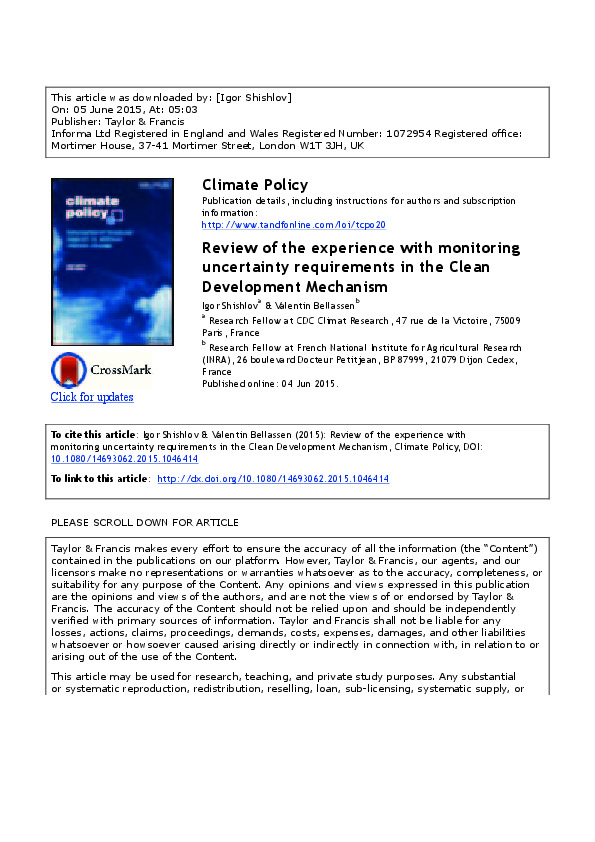Review of the experience with monitoring uncertainty requirements in the Clean Development Mechanism
By Igor Shishlov & Valentin Bellassen
In order to ensure the environmental integrity of carbon offset projects, emission reductions certified under the Clean Development Mechanism (CDM) have to be ‘real, measurable and additional’, which is ensured, inter alia, through the monitoring, reporting and verification (MRV) process. MRV, however, comes at a cost that ranges from several cents to E1.20 and above per tCO2e depending on the project type. This article analyses monitoring uncertainty requirements for carbon offset projects with a particular focus on the trade-off between monitoring stringency and cost. To this end, existing literature is reviewed, overarching monitoring guidelines, as well as the ten most-used methodologies are scrutinized, and finally three case studies are analysed. It is shown that there is indeed a trade-off between the stringency and the cost of monitoring, which if not addressed properly may become a major barrier for the implementation of offset projects in some sectors. It is then demonstrated that this trade-off has not been systematically addressed in the overarching CDM guidelines and that there are only limited incentives to reduce monitoring uncertainty. Some methodologies and calculation tools as well as some other offset standards, however, do incorporate provisions for a trade-off between monitoring costs and stringency.
Please find the full report by clicking HERE
